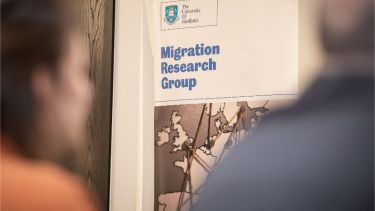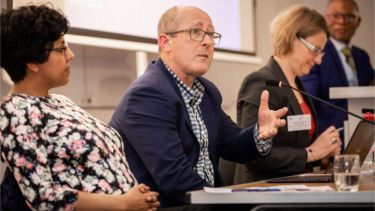This conference was organised by the Migration Research Group at the University of ∫˘¬´”∞“µ in collaboration with the Centre of Migration Research () at the University of Warsaw and . It was supported by the Programme on Modern Poland.
Speakers included:
- Professor Feargal Cochrane, University of Kent
- Professor Nira Yuval Davis, University of East London
- Professor Pawel Kaczmarczyk, University of Warsaw
- Dr Majella Kilkey, University of ∫˘¬´”∞“µ
- Professor Louise Ryan, University of ∫˘¬´”∞“µ
- Professor Peter Scholten, Erasmus University Rotterdam
- Professor Anna Triandafyllidou, European University Institute
- Catherine Woollard, European Council on Refugees and Exiles
- Dr Aarti Iyer, University of ∫˘¬´”∞“µ
At the very moment the UK plans to exit the EU, we invited migration scholars to come together to discuss how Brexit cannot be understood in isolation, but must be seen in relation to a geographic, temporal and conceptual ‘beyond’.
We collaborated to develop understanding of how on-going events in Europe and worldwide are transforming regimes, patterns and understandings of mobility and immobility.
In the 15 years since the 2004 Enlargement, at local and national scales, European countries have experienced seismic shifts associated with increasing intra-EU mobility, the economic crisis, austerity, the so-called ‘refugee crisis’, the rise of far-right and other populist sentiments.
Brexit is clearly a notable political landmark in the UK’s more generalised ‘hostile environment’, but globally it sits alongside other significant events such as Trump’s ‘raising the border’ rhetoric in the USA to the forced displacement of the Rohingya from Myanmar.
Following Castles (2010: 1576), we understand these shifts as bound up in broader processes of social transformation in which ‘existing social patterns are questioned and many are reconfigured’.
A social transformation lens on migration, invites us, therefore, to interrogate what is changing in the politics, policies and practices of mobility and immobility, and what this means for our existing theoretical and conceptual frameworks.











